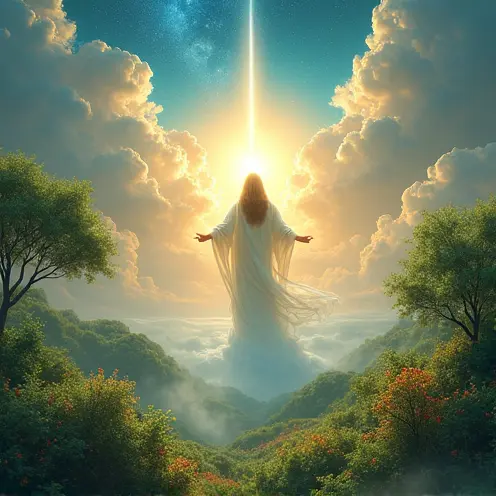The creation stories in the Bible are among the most foundational and profound narratives in human history. They provide a unique lens through which we can understand the origins of the universe, the world, and humanity itself. These stories are not merely ancient myths or legends; they are sacred texts that have shaped the beliefs, values, and worldview of countless individuals and civilizations for millennia.
The Bible contains two primary creation accounts, both found in the Book of Genesis. The first account, which spans Genesis 1:1 to 2:3, presents a highly structured and orderly depiction of creation. In this version, God creates the world in six days, with each day representing a distinct phase of creation. On the first day, God creates light, separating it from darkness and naming them day and night. This act of separation and naming is a recurring theme throughout the creation narrative, symbolizing order emerging from chaos. On the second day, God creates the firmament, sky or, to divide the waters above from the waters below. The third day sees the formation of dry land and the emergence of plant life. God gathers the waters into seas and causes the earth to bring forth vegetation, including trees and plants that bear fruit. The fourth day is marked by the creation of celestial bodies¡ªthe, sun moon, and stars. These heavenly objects are given specific roles: the sun to govern the day, the moon to govern the night, and the stars to serve as signs for seasons, days, and years. On the fifth day, God creates the creatures of the sea and the birds of the air, blessing them to be fruitful and multiply. Finally, on the sixth day, God creates the land animals and, most significantly, human beings. Unlike the other creatures, humans are made in the image of God, imbued with a unique spiritual essence and given dominion over the earth and its inhabitants. The creation process concludes on the seventh day, when God rests and sanctifies this day as a day of rest and worship.
The second creation account, found in Genesis 2:4¨C25, offers a more detailed and intimate portrayal of the creation of humanity. This narrative begins with the earth being formless and void, with no rain and no human to till the ground. God forms man from the dust of the ground and breathes into his nostrils the breath of life, making him a living being. The first man, Adam, is placed in the Garden of Eden, a paradise where he is to work and keep the garden. God then creates the animals and brings them to Adam to see what he will name them, thus establishing Adam’s role as a caretaker and steward of creation. However, Adam is alone, and God declares that it is not good for man to be alone. Thus, God causes a deep sleep to fall upon Adam, takes one of his ribs, and forms a woman, Eve, to be a helper suitable for him. The creation of Eve marks the beginning of human companionship and the institution of marriage, as Adam declares, “This at last is bone of my bones and flesh of my flesh; she shall be called Woman, because she was taken out of Man.”
These creation stories in the Bible serve multiple purposes beyond merely recounting the origins of the world. They convey deep theological truths about the nature of God, the relationship between God and humanity, and the purpose of creation. God is depicted as a sovereign and omnipotent creator, who brings order out of and chaos life out of nothingness. The creation of humanity in God’s image underscores the inherent dignity and worth of human beings, setting them apart from the rest of creation. At the same time, the stories emphasize humanity’s responsibility to care for the earth and its creatures, highlighting the interconnectedness of all creation.
Throughout history, the creation stories in the Bible have inspired countless interpretations and reflections. For many believers, they offer a framework for understanding the world and their place in it. They provide comfort, guidance, and a sense of purpose in a complex and often confusing world. While modern science offers its own explanations for the origins of the universe and life, the creation stories in the Bible continue to hold profound significance for those who seek to find meaning and connection through faith.

